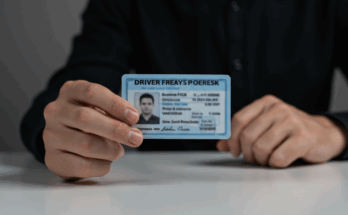Renting a car can be a convenient solution for travel, whether you’re on vacation, dealing with car repairs, or simply need an extra vehicle for a short period. However, one common question many drivers face is: “Does my auto insurance cover rental cars“? The answer isn’t always straightforward, and understanding the nuances can save you both money and stress. In this blog post, we’ll break down everything you need to know about how auto insurance applies to rental cars, helping you make informed decisions before hitting the road.

Understanding Your Existing Auto Insurance Coverage
➤ If you already have an auto insurance policy, there’s a good chance it provides some level of protection for rental cars. Here’s how it typically works:
- Liability Coverage: Your liability coverage, which pays for damages or injuries you cause to others, usually extends to rental cars. If you accidentally hit another vehicle or damage property while driving a rental, your existing policy should cover the costs up to your liability limits.
- Collision and Comprehensive Coverage: If your personal auto insurance includes collision and comprehensive coverage, these protections may also extend to rental cars. Collision covers damage to the rental car caused by an accident, while comprehensive covers non-collision events like theft, vandalism, or weather-related damage.
- Deductibles: Keep in mind that your policy’s deductibles will apply to any claims involving a rental car. For example, if your collision coverage requires a $500 deductible, you’ll need to pay that amount out of pocket before your insurance kicks in.
What About Rental Car Insurance?
➤ When renting a car, the rental company will likely offer you additional insurance options. These typically include:
- Collision Damage Waiver (CDW): A CDW is not technically insurance but rather a waiver that absolves you from financial responsibility for damages to the rental car. If you opt for this coverage, you won’t need to worry about paying for repairs or replacement costs in case of an accident.
- Liability Insurance: Rental companies may offer supplemental liability insurance if your existing policy doesn’t provide enough coverage or if you don’t have auto insurance at all.
- Personal Accident Insurance: This covers medical expenses for you and your passengers in case of an accident while driving the rental car.
- Personal Effects Coverage: This protects any personal belongings stolen from or damaged in the rental car during your trip.
While these options can provide peace of mind, they often come at a high cost, and some may overlap with coverage you already have through your personal auto insurance or even credit card benefits.
Credit Card Coverage [An Overlooked Option]
Many credit cards offer rental car insurance as a perk when you use the card to pay for the rental. This coverage is typically secondary, meaning it kicks in after your personal auto insurance has been applied. However, some cards provide primary coverage, eliminating the need to involve your personal policy altogether.
Credit card rental car insurance often includes collision damage protection but may exclude liability coverage, medical expenses, or theft of personal items. It’s essential to check your card’s terms and conditions before relying on this benefit.
When You Might Need Additional Coverage
➤ While your personal auto insurance and credit card benefits may cover most situations, there are instances where purchasing extra coverage from the rental company makes sense:
- You Don’t Have Auto Insurance: If you don’t own a car and therefore don’t have auto insurance, you’ll need to rely on the rental company’s offerings for liability and collision coverage.
- Traveling Abroad: Your personal auto insurance may not extend coverage outside your home country. In such cases, purchasing insurance through the rental company or a third-party provider is often necessary.
- High Deductibles or Limited Coverage: If your existing policy has high deductibles or limited coverage that doesn’t meet your needs, opting for supplemental insurance can help mitigate risks.
Tips for Renting a Car with Confidence
- Review Your Policy: Before renting a car, take the time to review your auto insurance policy and understand what is covered. Contact your insurer if you’re unsure about specific details.
- Check Your Credit Card Benefits: If you’re using a credit card to pay for the rental, research its rental car insurance benefits ahead of time to avoid surprises.
- Compare Costs: Weigh the cost of purchasing additional coverage from the rental company against the potential out-of-pocket expenses you’d face without it.
- Ask Questions: Don’t hesitate to ask the rental company about what their coverage includes and whether there are any exclusions or limitations you should be aware of.
Conclusion
Renting a car should be a hassle-free experience, but understanding how insurance works can make all the difference in protecting yourself financially. While your existing auto insurance often provides sufficient coverage for rental cars, there are situations where supplemental insurance might be worth considering. By reviewing your policy, checking credit card benefits, and asking the right questions at the rental counter, you’ll be well-equipped to make an informed decision that suits both your budget and peace of mind.



